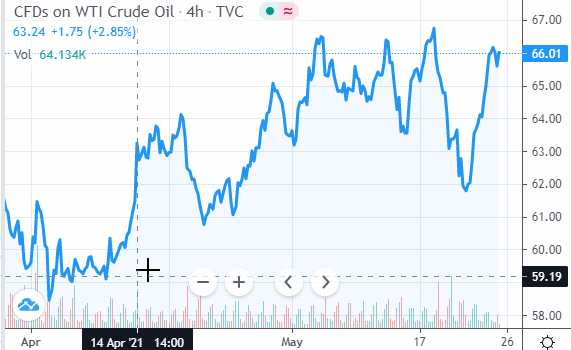The volatility in the crude oil markets, which we
saw in the aftermath of President Hassan Rouhani’s public disclosure that the
sanctions against Iran would be lifted, has since subsided; the prices of crude
oil are in equilibrium with relatively mild fluctuations.
Since the politics in the Middle East is
inextricably linked to the price of the commodity, analysts always keenly watch
the unpredictable political developments to gauge the evolving mood; it’s
something even the best Machine Learning process developed for sentiment
analysis cannot accurately predict.
At present, the talks that go in Vienna, Austria, in
order to revive the JCPOA, Joint Comprehensive Plan of Action, also known as
2015 Iran nuclear deal, blow hot and cold over about hopes of an amicable
agreement.
As the signatories start the fifth round of talks
today, which both sides say to be the final, analysts hope an agreement will be
reached at the end; the probability of success is fairly high, despite the
ultra conservatives in Iran expressing reservations; some brands the influence
of them as a part of the shadow of sabotage – with tentacles extending far beyond
Iran.
Since the outgoing President Rouhani of Iran wants
to end his term on a positive note, while bringing his country back from the
cold, his team will exercise maximum flexibility to strike a deal.
The Iranian oil sector, meanwhile, has been hoping
for that day for over three years while ramping up the production to kick start
the exports back as soon as it gets the global green light.
Lingering worries of the key players in the region
such as the UAE, Saudi Arabia and above all, Israel, however, remain intact;
Iran is on their radar – whether a deal is struck or not.
The teams in Vienna went past another milestone in
the marathon of talks yesterday when Iran agreed to extend by one month an
agreement allowing the International Atomic Energy Agency (IAEA) to keep
surveillance cameras at nuclear sites.
In Iran, meanwhile, the Guardian Council has
approved the names of seven candidates for the forthcoming presidential
election in June, barring some prominent figures such as the former president
Mahmoud Ahmadinejad from taking part; Mr Ahmadinejad hit back by saying that he
would boycott the election in protest.
All in all, by the end of the weekend, we may be
able to get an idea about the direction that the talks move and the progress
they make, if any, in Vienna in light of
the complex Iranian internal politics.







